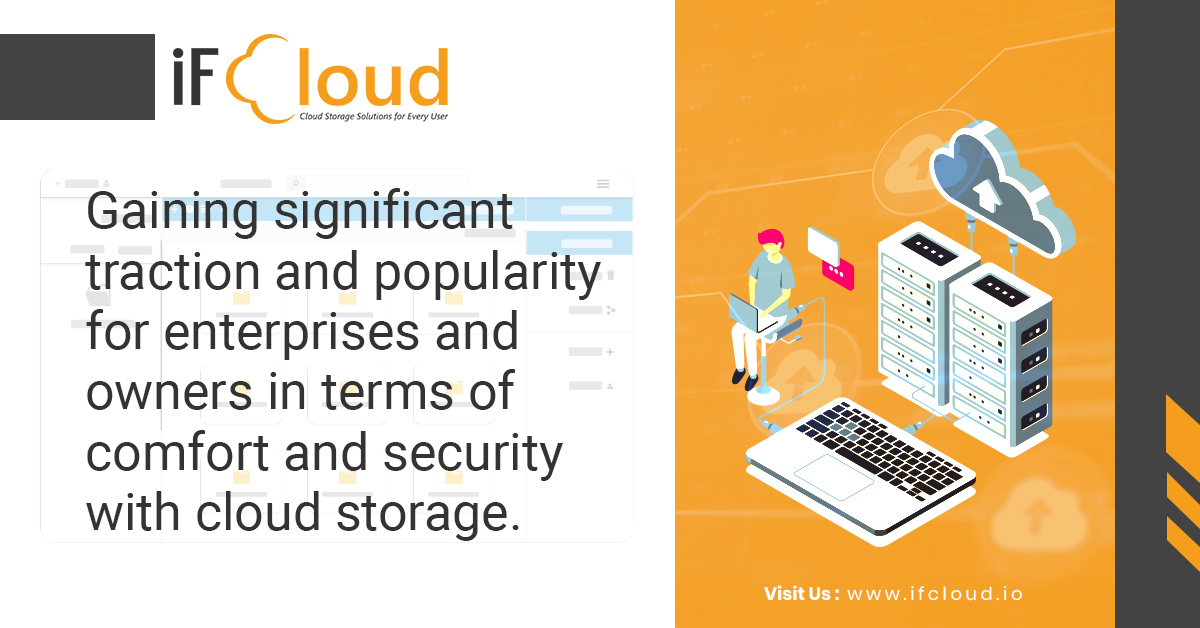
Gaining significant traction and popularity for enterprises and owners in terms of comfort and security with cloud storage.
Table of Contents
ToggleA cloud database is a cloud data storage solution to store and access data in the form of a large database. It is a service built for added performance and flexibility based on cloud computing. Whilst moving workloads to the public cloud, you need to consider options of secure file sharing. And for a database, it needs to be Database-as-a-Service or (DBaaS).
In the world of databases or let’s consider a relational database, wherein data is stored in rows and columns, and gets programmed in SQL, a cloud can be elastic and deliver fast compute capabilities.
The cloud is gaining significant traction and popularity for enterprises and enterprise owners in terms of comfort and security. To run the database, users need to install an application on a cloud platform to use or implement the database.
Key features of a cloud-based database include –
- Accessibility on the cloud
- Host databases on the cloud without investing in dedicated hardware
- Supports multiple versions of SQL or MySQL
- Can be accessed through a web interface
Why use cloud databases?
Easy Access
Easy data or database access from anywhere using an easy-to-use API or web platform.
Scalable
Expand cloud storage capabilities in real-time to accommodate new changes or requirements.
Faster Recovery
Data is kept secure in multiple redundant locations or remote servers in case of a natural disaster or malicious event.
Not all enterprises are moving to the cloud, but there is a significant shift in how enterprise owners are looking at the cloud to host their databases. It could also be said that enterprises would look at multiple cloud storage vendors, rather than depending on a single cloud entity.
Running a database in the cloud makes it easy for enterprises to scale or grow their database and get in new workloads. With a cloud-based database, data is replicated for secure file sharing across multiple locations.
The advantage of using a relational database over a transactional database would be its popularity for data analytics. Whilst deploying a relational database, it mostly gets down the cost, increases scalability, and performance in terms of DBaaS.
Why migrate a legacy database to cloud data storage?
Cloud data storage has numerous advantages over legacy systems viz.
- Mitigates the requirement of on-premise systems that require space, costs, workforce, and more
- Higher processing power for applications and analytics
- Achieve higher cost-savings with –
- Reduced or no-in-house workforce
- Reduced Cloud Data Storage Pricing
- Pay-as-you-go model
- Advantage of hosting a NoSQL or SQL database in the cloud
To Summarize,
Cloud data storage or secure file sharing over the cloud has become a prominent driver for information to flow within various individuals. Enterprises need to leverage this technology for its significant benefits in terms of its data security, file access. scalability, and more.
Visit us: – https://www.ifcloud.io/
You may also like
Recent Blog Post
- Track construction field productivity in real time with digital tools
- Choosing the right construction site management app for field teams
- Best construction document management software solutions for 2025
- Revolutionizing Construction Inspections: The Power of Construction Inspection Software
- Centralized Communication and Collaboration: The Backbone of Construction Project Management
Work Smarter, Not Harder
iFieldSmart empowers your team with AI-driven efficiency to simplify scheduling, boost collaboration, and keep projects on track — with human support every step of the way.
